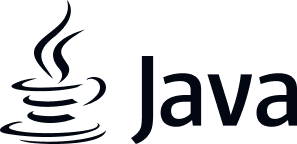
Java Programming Language
- Course Fee
- ₹15000
- Duration
- 90 hrs.
- Level
- beginner
This course is designed for anyone seeking Java SE Developer (1Z0-829) certification and gives in-depth knowledge to become Java developer. Candidates will learn Java programming concept, data structure and algorithm (DSA), Object-Oriented Programming (OOP), Java Libraries, introduction to frameworks, and understand about version control system like git. This course also covers combination of technical skills, practical experience, and a good understanding of software development principles. This course also helps candidates to understand database design using MYSQL RDBMS, about web technologies like HTML, CSS, MVC design pattern and Software Development Life Cycle (SDLC). This is a lab-intensive course and objectives are accomplished through hands on learning.
Enroll NowCourse Metadata
- Training Type
- ClassroomOnlineCorporate
- Batch Timings
- Early Morning
- Morning
- Afternoon
- Evening
- Fastrack
- Morning
- Afternoon
- Evening
- Sat / Sun
- Sunday Only
For the latest training schedule, please
check the Schedules.
Weekdays
Weekends
Training is available in small groups as well as on
one-to-one basis. Get in touch.
Introduction
This 90hrs (Lectures + hands-on Lab) JAVA training is designed for personnel involved in deploying, troubleshooting, and managing enterprise java application or java-based application. This course provides candidates with in-depth knowledge to become Java developer. Candidates will learn Java programming concept, data structure and algorithm (DSA), Object-Oriented Programming (OOP), Java Libraries, introduction to frameworks, and understand about version control system like git. This course also covers combination of technical skills, practical experience, and a good understanding of software development principles. This course also helps candidates to understand database design using MYSQL RDBMS, about web technologies like HTML, CSS, MVC design pattern and Software Development Life Cycle (SDLC). This is a lab-intensive course and objectives are accomplished through hands on learning.
The key to a high success rate is based on the program’s objectives as follows:
- Course contents are based on Java SE Developer course outlines.
- Dedicated Monitoring to evaluate and report candidate’s progress.
- Extensive hands-on lab exercises.
- Industry acclaimed, experienced and certified instructors.
Successsful Career
RST Forum has trained more than 700,000 students to date. Many students have gone on to successful careers in a variety of industries, while others have harnessed the entrepreneurial spirit and knowledge they acquired in RST Forum to start their own businesses and create new jobs.
Labs on cloud
RST Forum uses Cloud computing to efficiently provide “Platform As A Service” (PAAS) to its students enabling them to quickly access Technology Racks over the internet and practice lab exercise from home These Racks are populated with latest equipment’s required for practical exercise’s.
Web Forums
Our web based forum allows its users to ask, hundreds of technical experts about their technology and certification problem. RST forum is a tight knit community of working professionals that provide timely help on technical, certification and design related queries.
Enroll for this course now and boost your IT & Engineering career.
Master Java Programming Language today.